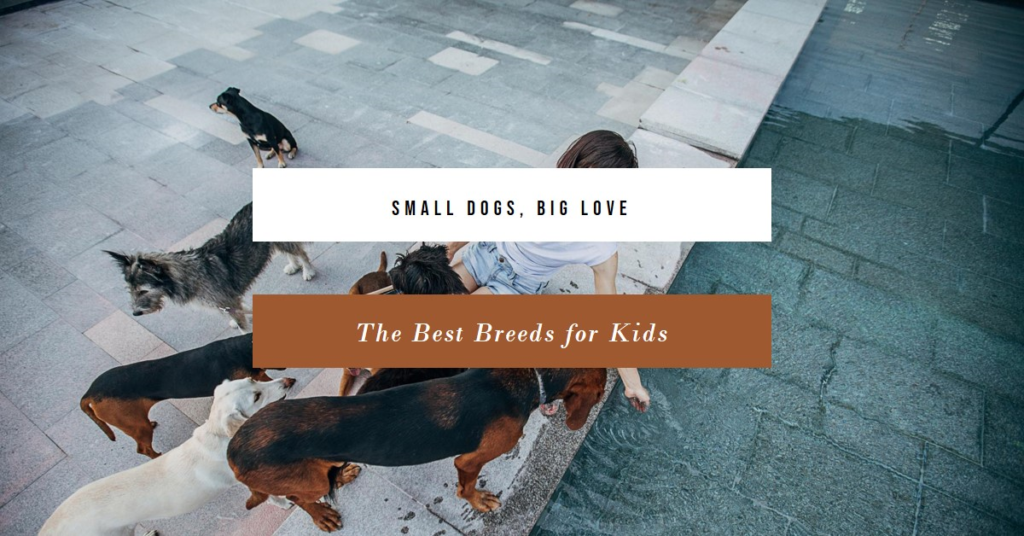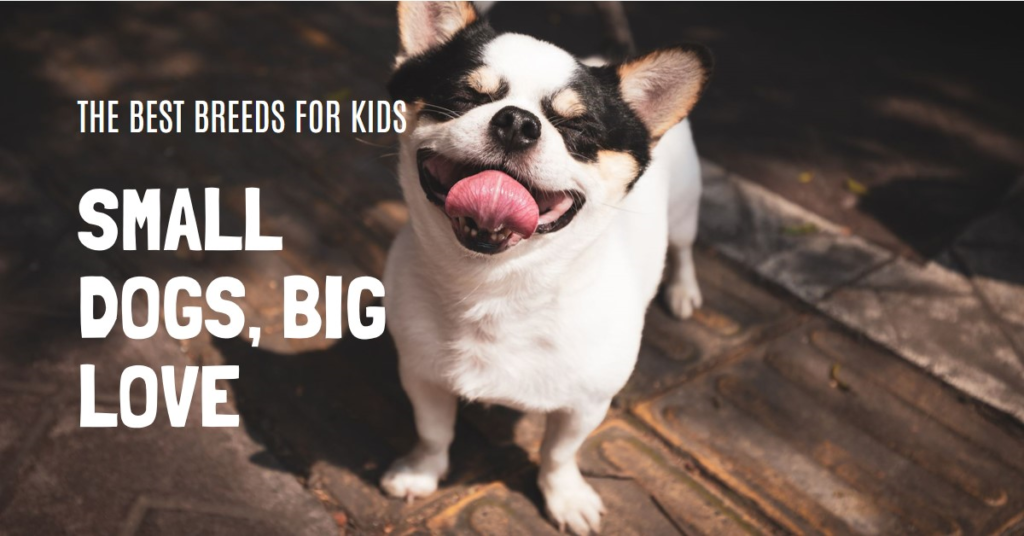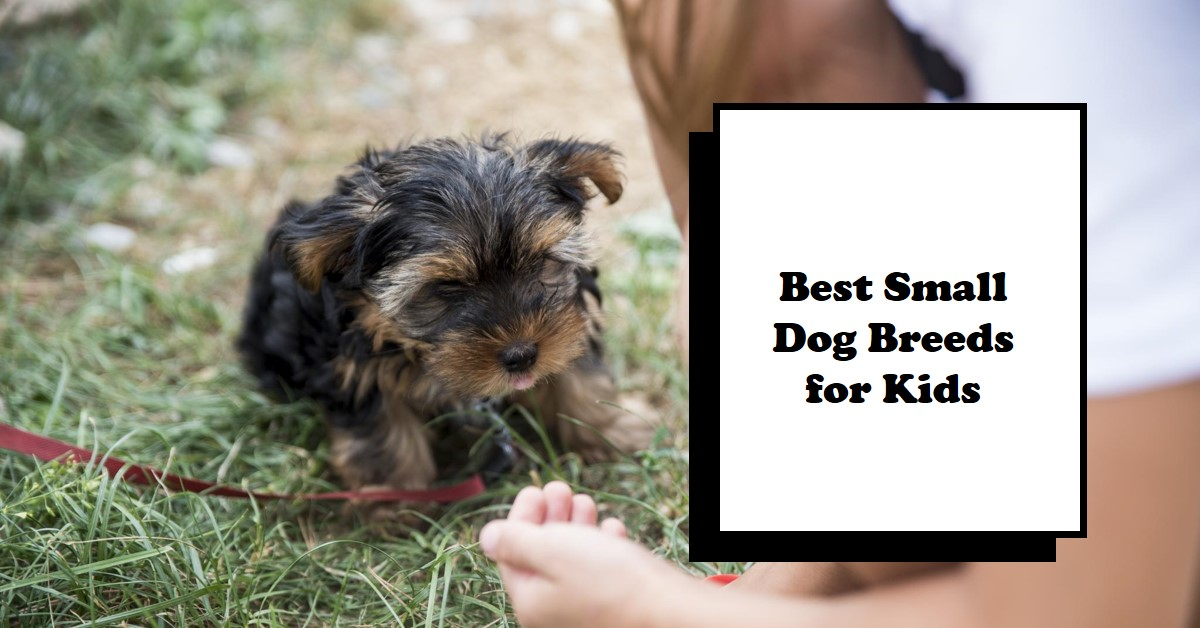Choosing the right dog for your family is a big decision, especially when children are involved. You want a loyal companion who will shower your kids with affection while remaining gentle and playful. Best Small dog breeds for kids often fit this bill perfectly, offering a manageable size and boundless energy that complements a child’s active lifestyle.
This comprehensive guide explores the best small dog breeds for kids, learning about their unique personalities, needs, and suitability for families with young children.

Top 5 Small Dog Breeds for Kids
- Bichon Frise: These fluffy white bundles of joy are known for their cheerful disposition and hypoallergenic qualities, making them ideal for children with allergies. Bichons are playful and affectionate, forming strong bonds with their families.
- Cavalier King Charles Spaniel: Gentle and loving, Cavaliers are perfect companions for children who enjoy cuddling and playing indoors. Their gentle nature and eagerness to please make them easily trainable, fostering a positive relationship with kids.
- Pug: These comical and charming dogs are known for their silly antics and unwavering loyalty. Pugs are relatively low-maintenance, requiring moderate exercise and minimal grooming, making them suitable for busy families.
- Beagle: Energetic and playful, Beagles are ideal for active families who enjoy outdoor adventures. Their friendly and outgoing personalities make them excellent playmates for children, encouraging interactive games and walks.
- Boston Terrier: Affectionate and intelligent, Boston Terriers are known for their gentle nature and eagerness to please. They are relatively easy to train and adapt well to various living situations, making them suitable for families with children of all ages.
- Shih Tzu: These long-haired charmers are playful and adaptable, thriving on human interaction. Shih Tzus are relatively low-shedding, making them a good option for families with allergies.
- Yorkshire Terrier: Yorkies are small but mighty, with big personalities and a playful spirit. They are fiercely loyal and protective of their families, making them excellent watchdogs.
- Poodle (Toy or Miniature): Poodles are highly intelligent and easily trainable, making them a good choice for families looking for an obedient companion. They are also hypoallergenic, making them suitable for allergy sufferers.
- Maltese: These elegant white dogs are gentle and affectionate and known for their love of cuddling. Maltese are relatively low-energy, making them ideal for families with smaller living spaces.
- Pomeranian: Pomeranians are lively and playful, with a fluffy coat and a charming personality. They are fiercely loyal to their families and make excellent watchdogs.
Choosing the Right Breed

Consider your family’s lifestyle and activity level when selecting a breed. If you lead an active lifestyle, choose an energetic breed like a Beagle or Boston Terrier. If you prefer a more laid-back companion, a Bichon Frise or Cavalier King Charles Spaniel might be a better fit.
Building a Positive Relationship
Supervise all interactions between your child and dog, especially during initial introductions. Teach your child how to handle the dog gently and avoid rough play. Ensure your dog receives adequate training and socialisation to promote good behaviour and prevent potential issues.
Understanding Dog Temperament and Compatibility with Children
- While specific breeds have general characteristics, it’s important to remember that every dog is an individual with a unique personality. Understanding dog temperament and compatibility with children is crucial for ensuring a harmonious relationship.
- Consider factors like energy levels, playfulness, and tolerance for roughhousing when choosing a breed for your family. Some breeds, like the Jack Russell Terrier, have high energy levels and require ample exercise and mental stimulation, while others, like the French Bulldog, are more laid-back and enjoy cuddle sessions.
- It’s also essential to assess your children’s temperament and playstyle. Gentle and patient children might thrive with a sensitive breed like the Cavalier King Charles Spaniel, while energetic and boisterous children might enjoy the playful antics of a Beagle.
Training and Socialization: Building a Strong Foundation
- Once you’ve chosen the best dog breed for your family, training and socialisation become crucial aspects of building a strong and lasting bond. Start with basic obedience training, teaching your dog essential commands like sit, stay, and come.
- Socialisation is equally important, exposing your dog to various people, places, and experiences. This helps them develop confidence and become well-adjusted members of the family.
- Remember, consistent and positive reinforcement is key to successful training and socialization, ensuring your dog learns appropriate behavior and develops a positive relationship with your children.
Creating a Safe and Happy Environment for Your Dog and Children
- With a new furry friend joining your family, creating a safe and happy environment for both your dog and children is paramount. Ensure your home is dog-proofed, removing any potential hazards like electrical cords or toxic substances.
- Establish clear boundaries and rules for both your children and your dog, teaching them how to interact respectfully and safely with each other. Supervise playtime and intervene if necessary, ensuring both parties feel comfortable and secure.
- By fostering a nurturing and positive environment, you can cultivate a lasting bond between your dog and children, filled with joy, laughter, and countless happy memories.
Conclusion
Finding the perfect small dog breed for your family can bring years of joy and companionship. By carefully considering your family’s needs and choosing a breed that aligns with your lifestyle, you can create a lasting bond between your child and their furry friend. Remember, responsible pet ownership is crucial, so ensure you provide your dog with proper care, training, and socialisation to foster a happy and healthy relationship.
Frequently Asked Questions
What are the benefits of having a small dog for kids?
Small dog breeds offer companionship, promote physical activity, teach responsibility, and provide emotional support for children.
What are some things to consider before getting a small dog?
Consider your family’s lifestyle, activity level, allergies, and living space before choosing a breed.
How can I prepare my child for a new dog?
Teach your child how to handle the dog gently, supervise interactions, and establish clear boundaries.
What are some common health concerns in small dog breeds?
Common health issues include dental problems, joint issues, and eye problems. Regular veterinary checkups are crucial.
How can I ensure a positive relationship between my child and dog?
Provide supervision, encourage responsible pet ownership, and establish clear boundaries to foster a safe and enjoyable bond.
Also Read:
- Best Cat Beds for Large Cats in 2024
- Best Orthopedic Dog Beds for Large Dogs
- Top Dog Foods for Sensitive Stomach in 2024


